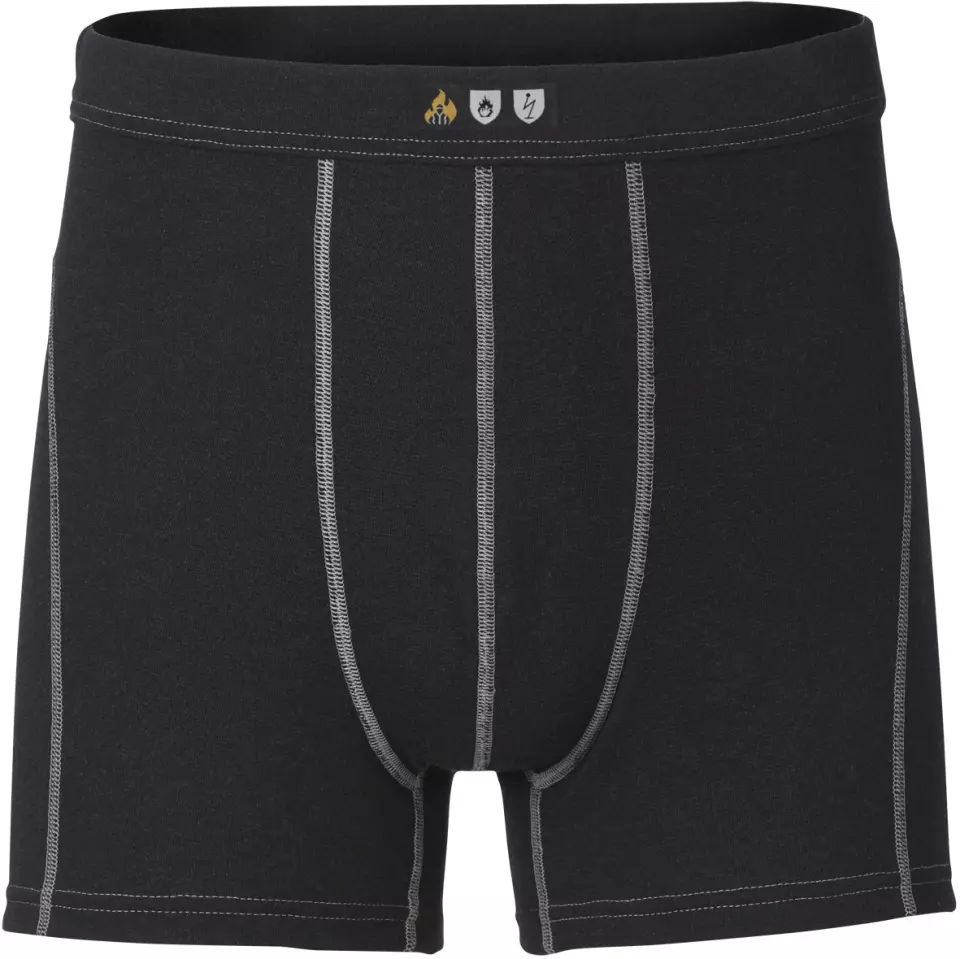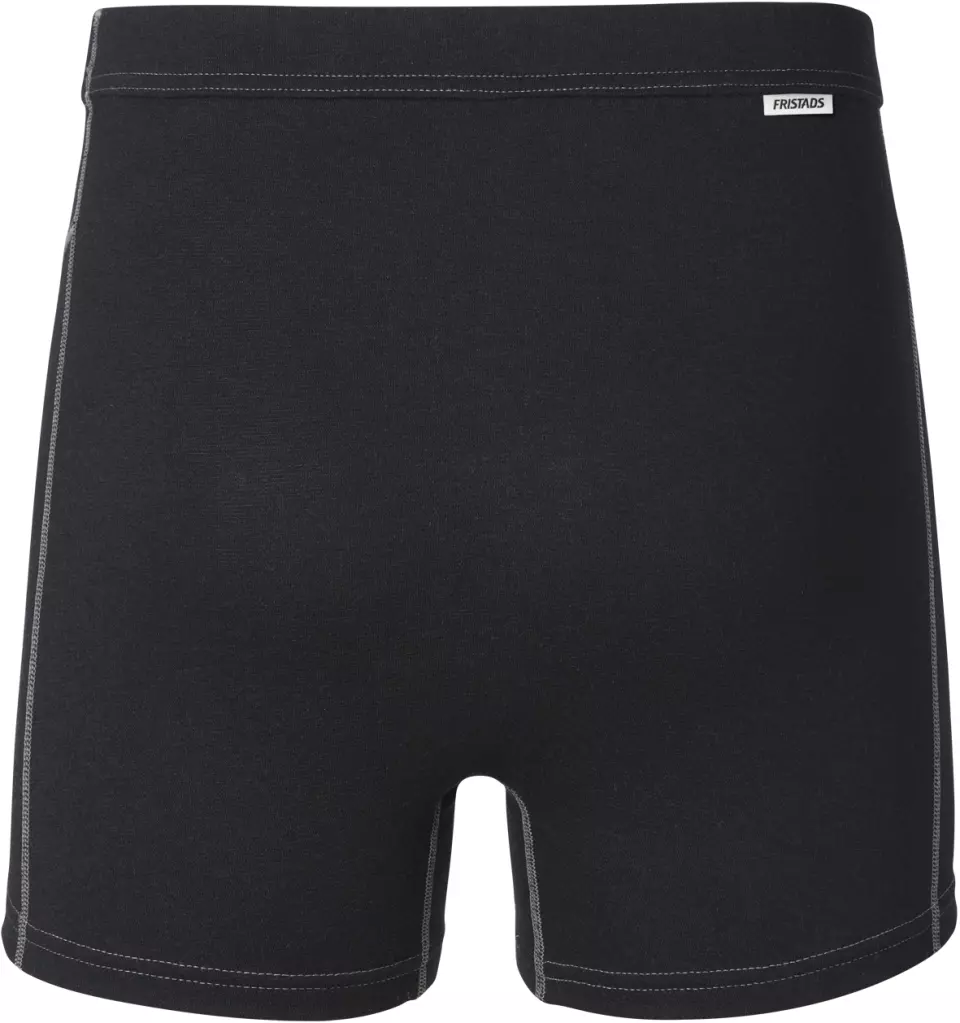Fristads Flamestat Boxer Shorts 7031 MOF
Fristads GmbH
visit storeProduct description
Product Features:
- Elastic waistband
- Close-fitting design
- Contrast stitching
Certifications:
- Tested and approved according to EN ISO 14116 Index 3 (material tested according to EN ISO 11612 A1 B1 C1 F1 and EN 61482-1-2 Class 1)
- EN 1149-5
- OEKO-TEX® certified
The visual appearance and hue of the garment, allowing you to match workplace requirements, personal style, or coordinate with uniforms.
Indicates the fundamental design approach and intended use, such as base layer performance wear or convenient disposable options for specific situations.
- Arc Flash Resistance
- Heat & Flame Resistance
- Electrical Protection
- Machine Washable
Request a free sample
Test first and buy later. Visit any product page to request your free sample.
Standards and labels
Protective clothing and materials with the EN ISO 14116:2015 rating are tested for limited flame spread, ensuring they do not continue to burn or melt after brief contact with small flames. This means your garment will resist ignition and self-extinguish quickly, reducing the risk of injury from minor flame exposure.
Test results
Flame Spread Test Index 3This garment provides the highest protection against limited flame spread. For brief, accidental contact with small flames, the material is designed to prevent fire from spreading, will not form a hole, and will stop burning within two seconds.
Protective clothing with the EN IEC 61482-1-2:2018 rating is tested for its resistance to the thermal effects of an electric arc flash using a "box test" method. This ensures the garment provides a certified level of protection, significantly reducing the risk of burn injuries from unexpected electrical incidents.
Test results
Low-voltage Circuit Arc APC 1This garment protects you from the thermal hazards of a sudden electric arc flash. It is rated Arc Protection Class 1 (APC 1), tested to shield against a 4kA short circuit electric arc.
Protective clothing with the EN 1149-5:2018 rating is tested for its ability to dissipate electrostatic charges. This prevents sparks that could ignite explosive atmospheres, keeping the wearer safe in hazardous environments.
Test results
Material Performance TestedThis garment's material is designed to dissipate static electricity, preventing sparks that could ignite flammable or explosive atmospheres. It is intended for use as part of a total earthed system in hazardous environments like petrochemical refineries.
Protective clothing, including garments, gaiters, hoods, and overboots, with the EN 11612:2015 rating are tested for protection against various heat and flame hazards like limited flame spread, convective heat, radiant heat, and splashes from molten metals. This ensures the clothing meets minimum safety standards for specific thermal risks, helping you choose gear that provides essential protection in hazardous environments.
Protective clothing with the EN 13688:2013 rating are tested for general requirements like ergonomics, harmlessness, accurate sizing, durability after cleaning, and clear labeling. This ensures the clothing is safe, comfortable, fits well, and provides reliable, long-lasting protection with clear user instructions.
Oeko-Tex Standard 100 is a product certification program for textiles, which is awarded by the Oeko-Tex Association. This program verifies that the textile products are free from harmful chemicals. To be able to use the Oeko-Tex Standard 100 label, a product must meet certain requirements set by the Oeko-Tex Association which include limits on the levels of harmful substances such as pesticides, heavy metals, and formaldehyde. The textile products are inspected and certified by Oeko-Tex, they can use the Oeko-Tex Standard 100 label on their packaging to show that they are free from harmful chemicals. This certification is for all types of textiles, from raw materials to finished products, and it is globally recognized.
Fristads GmbH delivery terms
Free delivery when you order more than 150,00 € from Fristads GmbH
Supplier shipping fee 6,68 €
Brand minimum 0,00 €
38,68 €
Shipping fee is 6,68 € for orders under 150,00 €
Sold in units of one piece
Need larger quantities?
Other products you may like
Recently viewed
Need help?
Get help from our experts
Other products you may like
Similar products you may like
Autonomous sourcing platform
The most efficient way to source and order supplies for your operations
Sourcing
Ordering
List products you’re looking for and we’ll find the best products and prices for you – all for free.
Need help?
Get help from our experts




